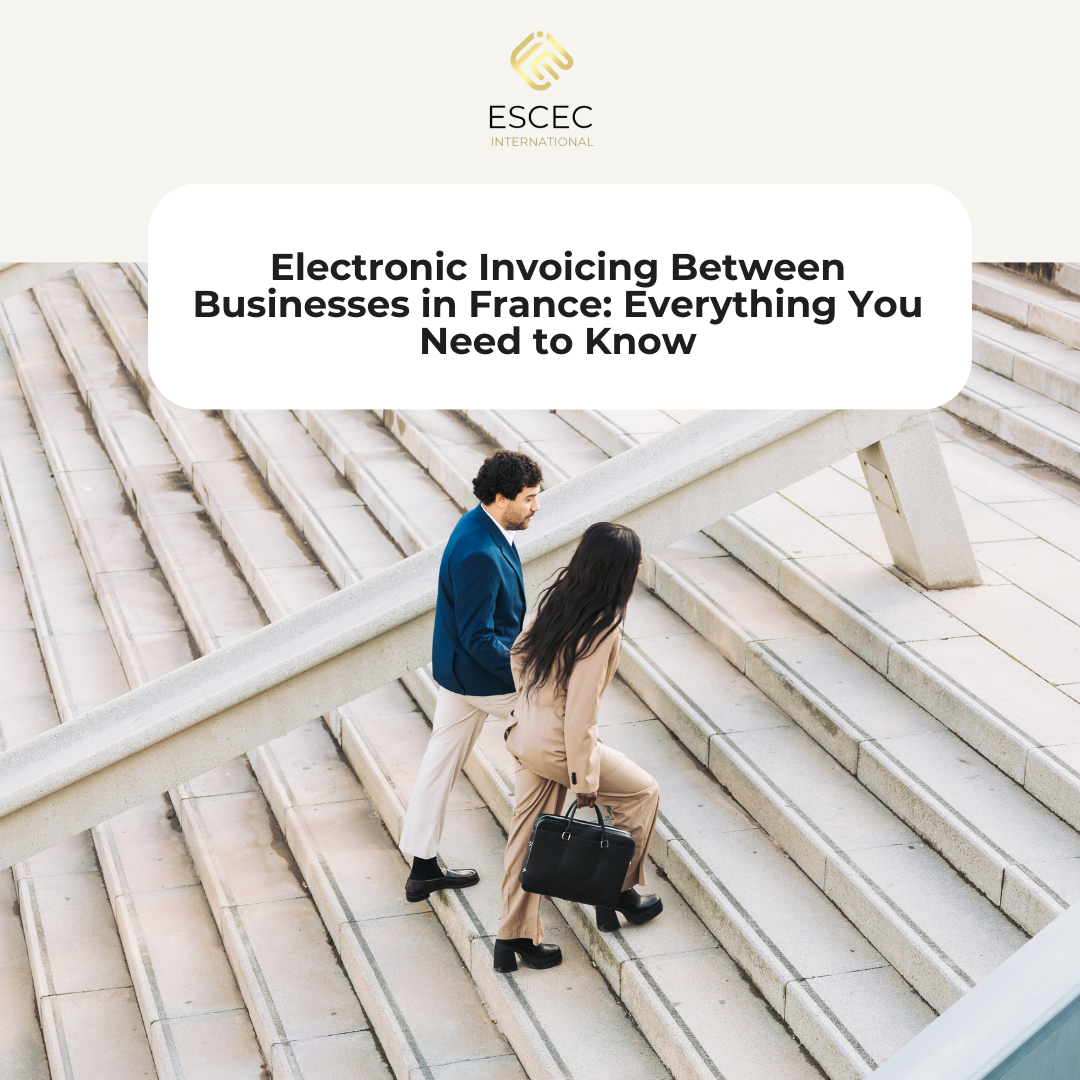Electronic Invoicing Between Businesses in France: Everything You Need to Know
The obligation for electronic invoicing (e-invoicing) between French businesses subject to VAT will take effect in 2026. Companies must comply with regulated procedures for issuing, receiving, and transmitting invoices. This guide explains everything you need to know, including tools like Tiime invoice to simplify compliance.
Background: Digital Invoicing for Public Contracts
Since 2020, all companies have been required to issue digital invoices for contracts with the State, local authorities, and public institutions via Chorus Pro.
With Article 26 of the 2022 amended finance law, this requirement will extend to all invoices issued between VAT-registered businesses in France. Businesses will also need to transmit invoicing data to the tax authorities, including information about non-domestic operations or transactions with non-VAT-registered entities.
Scope of Electronic Invoicing Between Businesses
Electronic invoicing covers all domestic purchases and sales of goods or services between VAT-registered companies in France.
Additionally, companies must report certain operations not covered by e-invoicing. This e-reporting includes transactions with individuals, non-VAT-registered businesses, or foreign entities, provided the operation involves a VAT-registered French business.
Legal and Regulatory Framework
French e-invoicing rules are defined by several key regulations:
-
Decree No. 2022-1299 (7 October 2022): Details the procedures for issuing, transmitting, and receiving e-invoices, as well as reporting invoicing and payment data to the DGFiP.
-
Order of 7 October 2022: Specifies technical requirements and procedures.
-
Decree No. 2024-266 (25 March 2024): Introduces a transitional regime for registering Partner Dematerialization Platform (PDP) operators and updates the generalization timeline.
-
Decree No. 2023-377 (16 May 2023): Explains how to secure invoices with a qualified electronic signature or seal.
Timeline: When Electronic Invoicing Becomes Mandatory
According to the 2024 Finance Law (Article 91):
-
1 September 2026: Large companies and mid-sized enterprises must issue e-invoices.
-
1 September 2027: SMEs and micro-enterprises must issue e-invoices.
-
1 September 2026: All companies, regardless of size, must be able to receive e-invoices.
Previously, Article 3 of the 15 September 2021 ordinance had set the schedule as 1 July 2024 for large companies, 2025 for mid-sized businesses, and 2026 for others.
Tools for Electronic Invoicing
Businesses can issue or receive e-invoices using:
-
A Partner Dematerialization Platform (PDP) registered with the tax administration. The platform can be the same as the supplier’s or different.
-
Chorus Pro, the public invoicing portal.
For e-reporting, transaction data must be transmitted via a PDP or Chorus Pro. The tax authority lists all registered PDPs and details their functionalities.
Tiime: The All-in-One Solution for Entrepreneurs
Tiime invoice is a comprehensive accounting and invoicing software designed for entrepreneurs. It supports invoicing, accounting, and a professional bank account, fully prepared for electronic invoicing.
-
Quick invoicing: Create quotes and invoices in under 2 minutes, personalize them, and accelerate client payments.
-
Integrated professional account: Pay and get paid easily, including Mastercard, employee cards, and virtual cards.
-
Manage purchases: Add receipts via photo, centralize all purchases, and synchronize with your accountant.
-
Expense management: Record personal expenses for company reimbursement and calculate mileage allowances.
-
Cash flow monitoring: Track expenses, revenue evolution, and key indicators with customizable charts.
Why Electronic Invoicing Is Important: Fiscal Consequences: Tiime invoice
Electronic invoicing is more than a legal obligation. It also offers fiscal, operational, and security benefits:
-
Fiscal compliance: Ensures accurate reporting to DGFiP, reducing VAT errors and penalties.
-
Operational efficiency: Streamlines processes, accelerates payments, and reduces paperwork.
-
Security: Qualified electronic signatures or seals guarantee invoice authenticity.
-
Transparency: Real-time reporting enhances fiscal oversight and accountability.
How ESCEC International Can Help
Implementing electronic invoicing can be complex. ESCEC International offers comprehensive support:
-
Platform setup: Identify the right PDP or optimize Chorus Pro usage.
-
Compliance checks: Ensure all invoices meet DGFiP standards.
-
Data management: Handle domestic and non-domestic e-reporting accurately.
-
Training and support: Equip teams to issue, receive, and secure invoices effectively.


